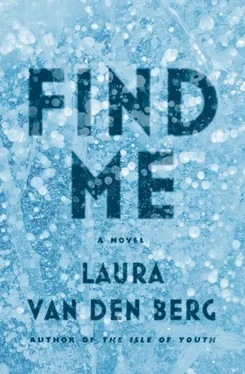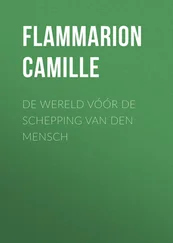This was in Roxbury. Back then I dreamed of the countryside: fields with mazes of tall grass, graceful rivers, climbing trees. Nearby there was an overgrown lot surrounded by a chain-link fence, and sometimes I would slip through a hole in the fence and walk through the dead grass, ignoring the shattered glass and the shadows of crumbling buildings, pretending I was free.
Once a fire alarm tore open our night. Eighteen girls raced down the staircase, led by our overnight counselor, a woman who wore white knee socks with sandals and her hair in a thick braid. Eighteen girls scattered across the front lawn. Some had thought to pull on shoes and some, like me, had just run. It was September and already there was a sharp chill in the air. I could feel a splinter settling into the arch of my foot. I stood on one leg. The night was dark and still. A grease fire had ignited in the kitchen. We watched smoke blacken the windows as we waited for the howl of the sirens, waited to be saved.
The kitchen was scorched long before a fire truck came, an early lesson in exactly how much the outside world cared about us.
I didn’t know anything about my real mother until the sickness. That was the second thing that brought me to the Hospital.
During the sickness, a company called Last Rites was formed. For a fee, they got the dying whatever they wanted. The first person they kissed. A vintage arcade game. A jar of sand from a foreign beach. In the early days of August, I got a call from a Last Rites representative who said my aunt wanted to see me. When I told them I didn’t have an aunt, didn’t have any family at all, they said I did. Her name was Christina. My mother’s sister. She was at Mass General. If I ever wanted to see her, this was my chance.
I was exhausted. I hadn’t been sleeping. The nights were a long scream of emergency. I’d started seeing orange spots in the air, small discs that slid through the streams of dust and light in my apartment — a symptom, I was increasingly sure, of something incurable. The T was closed. There were no taxis or buses. I hadn’t been outside in days, surviving on soup cups and lime Jell-O and getting stoned on cough syrup. My apartment felt like a tomb, the door a seal — would I ever get out? The representative’s voice had a hypnotic effect on me. I couldn’t tell if it was a man or a woman speaking. They told me to wait ten minutes and then go outside.
The street was scattered with flyers warning people to stay in their homes and refuse contact with the sick. There was a drawing of a man peering out a window, one arm around a woman, the other around a child. Some flyers lay in the gutter, the paper a black pulp.
On the corner an aluminum trash can had been overturned. A thin brown dog trotted up and licked the metal edges. The dog ran away, howling. The sky was clear and bright.
At first, the black town car was a spot in my periphery. I looked down the street and watched it grow larger, turn into something real. The driver wore an orange hazmat suit. A nozzle connected mouth to body. A thin sheet of glass separated the backseat from the front. Inside the car reeked of bleach. The smell made my eyes run and my nose itch.
The streets stayed empty. We passed telephone poles papered with flyers and yards wild with vines and yellow grass.
HUMAN SACRIFICES someone had spray-painted on the concrete side of a municipal building in dark, oozing letters.
It felt strange to be in the car, to be the one on the inside.
As we drove through Cambridge, I thought about Mount Auburn Cemetery, to the west of Harvard Square, and imagined the land swelling with bodies. I thought about the shop across the street from the cemetery that sold headstones. They were displayed outside, smooth hunks of gray and blue marble, made taller in the winter by ridges of snow. There was a condominium building next door, and I thought about what it must be like for the people who lived there to stare down at their eventual destiny. I thought about the supermarket a little farther up Mount Auburn and the jigsaw of abandoned shopping carts that always filled the parking lot.
All these signs of the end. How could we claim to have been caught by surprise?
We crossed over the Charles River, empty water.
At Mass General, a hazmatted doctor showed me to a quarantine room, where a suit of my own was waiting, hanging from a hook on the wall. A chair and table stood in the center of the room, parts of the hazmat — neon yellow boots, blue rubber gloves — laid out on top. First, an inspection. The doctor searched my body for silver blisters and then pointed a little flashlight in my eyes.
“Dilated pupils,” he observed.
“It’s the Robitussin,” I said.
How much Robitussin and do you take it all the time? he might have asked.
So much, all the time, I might have said.
Instead the doctor clicked off the flashlight, unfazed. Dilated pupils were not a symptom of what he was tasked with finding.
I had to sit in the chair and do a coordination test where I placed my hands on my thighs and turned them over thirty times in a row.
“A beautiful brain,” the doctor said when I finished. He lifted the suit off the wall and carried it over to me.
I worked the suit on, one leg at a time. The boots and gloves followed. The air tank on my back was the size of a small fire extinguisher. The doctor secured the sleeves and legs with thick tape. He pulled the hood over my head and sealed me inside.
I followed him down a beige hallway. In the suit, my steps were clumsy and slow, as though I was moving underwater, and my heart felt like it was beating outside my body. I counted the heavy thuds.
Christina’s bed was encased in a clear plastic tent. Machines surrounded her, screens and monitors that beeped and growled and sprouted white tubes. Her cheeks were collapsing into her face, as though the interior structure, the bones, were melting away. Her hair was a pale swirl on the pillow. She had a silver sore in the center of her forehead like an extra eye.
An epidemic of forgetting. That much is known. First: silver blisters, like fish scales, like the patient is evolving into a different class of creature. Second: the loss of memory. The slips might be small at first, but by the end the patient won’t remember the most basic details of who they are. What is a job? What is a staircase? What is a goldfish? A telephone? A spoon? What is a mother? What is a me? Coordination deteriorates. Vision goes strange. The patient falls into a coma and never wakes.
This woman, this Christina, stared blankly through her tent. Even in the suit, I was afraid to get too close. I wondered if a mistake had been made.
The doctor lingered in the doorway, watching us, until shouting broke out in the hall and he was called away to another disaster.
“I’m Joy,” I said, taking a step toward her, trying to be brave. “Joy Jones.”
I was named Joy Jones by the nurses at Brigham, who got tired of calling me 6212, my hospital ID number. The symmetry of the name has never suited me.
Christina’s mouth was molting silver. Her lips smacked at the air.
A doctor’s stool stood in the corner and on that stool sat an envelope, my name written across it. Inside I found a square of paper with an address, a street in the South End, and a key. On the other side of the paper, there was a note:
Joy—
Look under the bed.
C
“Is this for me?” I pressed the envelope against the tent and the plastic shuddered. I felt a burn under my skin, like my nerve endings were catching fire. “Is this where I’m supposed to go?”
She squeezed her eyes shut, her lids clay-colored and sagging. Her right arm began to twitch on the bed.
In the end, the muscles spasm. Patients cannot swallow or talk and are fed through tubes or not at all. Those who are not being properly monitored suffocate. In the end, sight betrays them. They see things that aren’t there. The once solid world dissolves like a brick of sugar left out in the rain. In the end, the patients shit their beds. Touch is agony. They cannot sleep. They lie rigid under the sheets, a corpse in the making, somewhere between conscious and not.
Читать дальше












